Trusted flagger
An important element of the Digital Services Act (DSA) is the status of the so-called trusted flagger. The role of trusted flaggers is to notify illegal content quickly and reliably in order to speed up and improve the process of removing such content from the online environment.
The list of all trusted flaggers in the EU is available here.
Currently, CTU cannot handle applications for certification of trusted flaggers, yet.
Providers of online platform services are obliged to handle notices from trusted flaggers concerning illegal content with priority if these notices fall within the designated area of expertise of the trusted flagger. This means that if illegal content is identified by the trusted flagger, the provider will act against this content more quickly, which contributes to the overall safety of the online environment.
Who may become trusted flagger?
Legal persons may apply for certification if they meet the requirements of expertise and technical competence relevant to the effective performance of their function. In order to act as a trusted flagger, an entity must obtain certification from the Digital Services Coordinator in the Member State in which the applicant is established. This certification ensures that trusted flaggers have the necessary expertise and are able to accurately identify illegal content on online platforms. Trusted flaggers must be independent from the providers of online platforms and carry out their activities diligently, accurately and objectively.
Trusted flaggers are also required to publish regular reports on notices made, which include information on the number of notices and their categorisation by provider, the type of the content notified, and the action taken. This increases transparency and provides relevant information for monitoring and evaluating the effectiveness of the fight against illegal content on the internet.
Which providers must work with trusted flaggers?
All providers of online platform services under Article 3(i) of the DSA, with an exception for small and micro undertakings, have an obligation to cooperate with trusted flaggers.
Online platforms are obliged to take the necessary technical and organisational measures to ensure priority handling of notices from trusted flaggers. If a provider considers that the quality of a notice from a trusted flagger is not sufficient, they may communicate this fact to the Digital Services Coordinator who may revoke the certificate of the trusted flagger.
Establishing trusted flagger status under the DSA does not prevent providers from processing notices submitted by persons who are not trusted flaggers, or otherwise cooperating with others to remove illegal content online.






